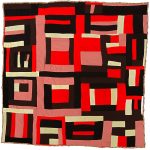“This Is Not the Most Important Election of Our Lives.” Here in Pennsylvania, there’s a lot of talk about the upcoming election that will apparently decide “the future of democracy.” Given the two major-party candidates we have to choose from for the US Senate, the prospects for democracy look pretty gloomy. But in this conversation with Daniel Silliman, Michael Wear helpfully rejects this way of talking about elections: “What I do hear is a lot of talk about existential crisis. But the more we load onto our politics, and the higher the stakes, the harder it becomes to really have a democratic process. If an election is a binary choice about the most fundamental questions—which is what both sides are offering—that’s too removed from the critical day-to-day work of governing.”
“The Biggest Disruption in the History of American Education.” Meira Levinson and Daniel Markovits chronicle some of the consequences of COVID-related school closures for the Atlantic: “No other high-income country in the world relied to such a great extent on remote instruction. The coronavirus caused by far the biggest disruption in the history of American education. Neither the Great Depression nor even the two World Wars imposed anything close to as drastic a change in how America’s schoolchildren spent their days.”
“Writing at Burger King.” Nadya Williams weighs how authors should value their creative endeavors against other goods—such as children: “a recognition of humility as a virtue essential for finding a well-ordered balance of priorities, particularly for mothers but really for anyone inspired to create.”
“Sorry You Went Viral.” Drew Harwell and Taylor Lorenz continue their in-depth reporting on the dynamics of TikTok culture: “TikTok has become the world’s biggest gatekeeper for online fame, and its rise has helped supercharge an internet reality: One great moment can be the difference between a celebrity and a nobody. The app’s promise is especially attractive to the millions of young people aspiring to a life or career as an online influencer. What if anyone could be a star? But this new era of instant, inexplicable attention has also come at a price.”
“The Climate Art Vandals Are Embarrassing.” The delightfully sane Robinson Meyer argues that dramatic climate protests attacking works of art with soup and mashed potatoes aren’t effective by any measure.
“The Ironic Revenge of Karl Marx.” Mark T. Mitchell develops some of the themes in his new book, Plutocratic Socialism. While he agrees with much of Marx’s diagnosis (“Marx understood that big business and big government arise in tandem, feed off each other, and perpetuate each other. He understood that the concentration of capital—which is to say economic power—would lead to a concentration of political power.”), Mitchell proposes a radically different prescription: distributed private property.
“Partisan Citizens.” Jeffrey Folks reviews Tony Woodlief’s I, Citizen: A Blueprint for Reclaiming American Self-Governance and argues its solutions are inadequate to the political dysfunctions of our day: “How does one oppose the explosive growth of federal power? Woodlief believes that Americans must turn away from partisan politics and participate in small-scale local associations such as church discussion groups and informal meetings at McDonald’s. This sort of discussion will then empower ordinary Americans to participate more actively and skillfully in local politics, assert state and local control, and eventually reassert self-governance.” Folks finds this approach unsatisfactory and advocates more determined right-wing partisanship at the national level as the necessary response. This is an increasingly popular position, but it also strikes me as a deeply misguided one. Woodlief’s vision may not promise the short-term, flashy results of naked partisanship, but his more modest, long-term, and localist approach remains the path of wisdom. To quote Wendell Berry, “hope lives in the means, not the ends,” and some forms of power cannot be wielded well.
“Making Squirrel Cassoulet: Part One.” Brian Miller provides instructions on how to obtain the fixings for a good fall dish.
“Can Sunak End the New Class War?” Mary Harrington compares contemporary British politics to the nineteenth-century debates over the Corn Laws and makes sharp observations about the interplay of class and economic tensions: “the likelihood is that we’re in for a period of class conflict on a scale not seen since the early days of trade unionism.”
“The Case for Going Home.” Natalie Minnaar draws on Wendell Berry to articulate her longing to use a college education to serve her home: “Education is a wonderful gift, but it is up to us to faithfully use it to better our communities and love people. Wherever you currently call home, there are people who can benefit from your gifts. If you are looking for a better place to be, stop looking. Never underestimate the goodness of going home.”
“War Games do Something Seriously Unpleasant to our Brains.” Sam Kriss explores the far-reaching effects of war games: “With the technology available, we can imagine ourselves doing anything. But again and again, we do this. I think these games do something deeply unpleasant to our brains. I’m not even talking about the violence; it’s more fundamental than that.”






1 comment
Brian
“This Is Not the Most Important Election of Our Lives.”
“The Biggest Disruption in the History of American Education.”
If the latter is true, and I think it is, then the former is false. People need to pay for what happened, and they have to pay severely in order to make sure it can never, ever, ever happen again.
Decide for yourself what that means for your vote, for various levels and positions, but that’s pretty big stakes. Way bigger than marginal tax rates, etc.
Comments are closed.